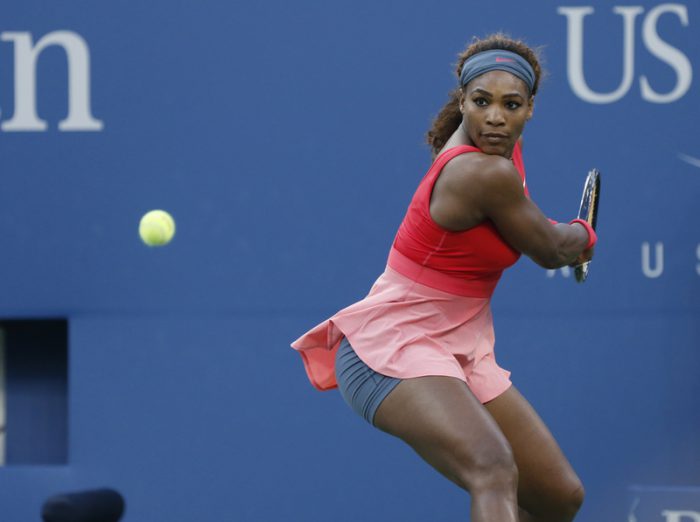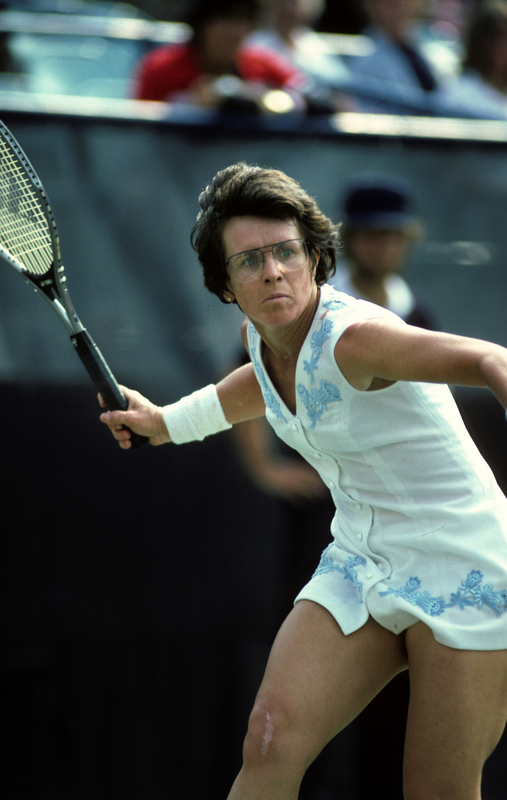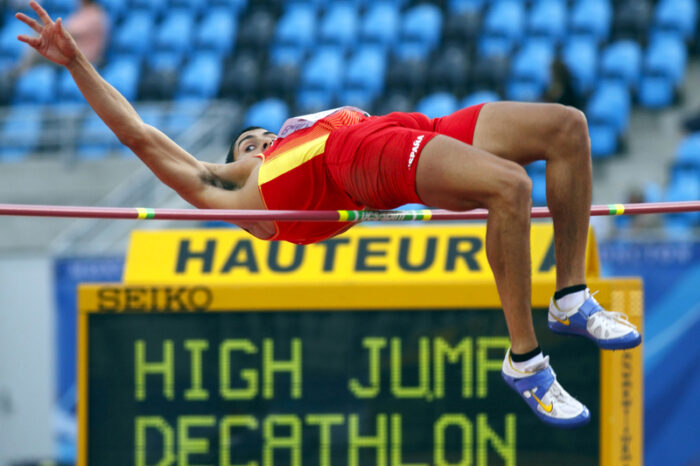Last Friday night, American tennis player Serena Williams was playing in the U.S. Open in New York City.
It was a Grand Slam (top level) tournament that she had won six times before—one of the biggest events in the sport. Crowds there had become used to cheering for the star, used to watching her winning tough matches against the best in the world and lifting the trophy.
But this time was different.
A month earlier, at a tournament in Toronto, Serena had announced that this year's U.S. Open would be her last tournament ever. She was retiring.
So now the crowds were coming knowing that they could be watching the 40-year-old legend's last match ... ever!
It certainly looked that way the previous Wednesday night when she played the world's No. 2 ranked player, Anett Kontaveit. Instead, Serena played one of her best matches in years, riding the crowd's love to a famous win.
Serena celebrated her final pro tennis victory last Wednesday. (Getty Embed)
But on Friday, against Australia's Ajla Tomljanovic, that moment finally came. Serena bowed out 7-5, 6-7, 6-1, and said goodnight to the New York crowd one final time.
Many athletes have fans. And many athletes retire. But few athletes have as big a fanbase, or have achieved as much over their career, as Serena did.
Let's take a look at why she will be missed so much by so many, and why she—alongside her amazing older sister, Venus—helped changed sports forever.
The numbers
Serena at 17, when it all really began—after winning her first Grand Slam, the 1999 US Open. (Getty Embed)
First off, Serena is straight up one of the greatest champions tennis has ever seen.
In terms of Grand Slams (meaning the top tournaments in the sport—U.S. Open, Australian Open, French Open, and Wimbledon), she won 23, which is the second most all-time. (The most was Australia's Margaret Court, who played between 1960 and 1977).
She also won four Olympics gold medals, 73 total titles across all tournaments, and was ranked number one in the world for 186 consecutive weeks (that's over three and a half years, and a record alongside Germany's Steffi Graf). She won 535 matches on hardcourt tennis courts (her favourite type of court), which is the most ever. In total, she won 855 matches and lost just 152, meaning she won nearly 85 percent of the matches she played.
With the help of the prize money captured from all of these wins, Serena became the highest paid female athlete of all-time, in any sport.
The game
Serena did all of this with a style of playing that tennis really hadn't seen before.
Her serve (the opening shot of each point) was enormous and fearsome. Fast, heavy, and accurate, when Serena was feeling it, there wasn't much an opponent could do but watch.
For example, watch this game during the 2012 Wimbledon final against Poland's Agnieszka Radwanska. Her opponent couldn't even touch the ball once as Serena coolly fires winner after winner.
But the serve was just one part of Serena's game. She generated tremendous power with both her forehand and backhand during rallies. And her energy and passion were legendary. Hit a 'perfect' shot against her? Serena would find a way to get it back.
Watch this epic rally between her and best friend Caroline Wozniacki at the 2014 U.S. Open final.
And when the pressure was high, Serena was at her best. Notice how those two highlight were from finals of Grand Slam tournaments? No matter how high the stakes were, she almost always seemed to find a way to stay focused and determined.
This wasn't easy, because there were plenty of reasons for Serena to get rattled.
The adversity
Venus (left) and Serena after the final of the 2017 Australian Open. This was one of Serena's favourite tournaments ... sorry, sis! (Getty Embed)
When Serena turned pro in 1995, tennis was a sport with almost no Black athletes. (One of the only other ones was her own sister, Venus, who turned pro the year before). In fact, even before she was a pro, she and Venus dealt with racism on junior courts and in tennis clubs—they relied on their parents, Richard Williams and Oracene Price, for both coaching and encouragement.
And though women's tennis had come much further than nearly any other professional women's sport, its players were still earning less and receiving less coverage in the press than the men were.
Serena worked with designers to create outfits that blended her love of fashion with her love of tennis. (Getty Embed)
Over her 27-year career, Serena endured two levels of discrimination to lift herself, and all of women's tennis, to a whole other level. And she did it in a way that was expressive and without compromise. She was famous for her fashionable outfits and glamour on court, too. And she and Venus stood up for the rights of both Black and female athletes.
Thanks to them, the women's game featured more power than ever. Players were stronger and more fit. They had to be to compete with Serena!
And finally, young BIPOC girls could see themselves in the athletes on the court. Today, a new generation of players like the USA's Coco Gauff and Japan's Naomi Osaka could imagine a future of their own in tennis.
This list of appreciation could go on and on, because Serena was so good, for so long. But let's leave it with her speech to the court after her final match on Friday.
Or was it her final match (she kind of leaves it open, doesn't she)? Either way, thanks Serena! Tennis is better because of you!
 One of the greatest athletes to ever play tennis, Serena Williams. (ID 43547548 © Zhukovsky | Dreamstime.com)
One of the greatest athletes to ever play tennis, Serena Williams. (ID 43547548 © Zhukovsky | Dreamstime.com)









